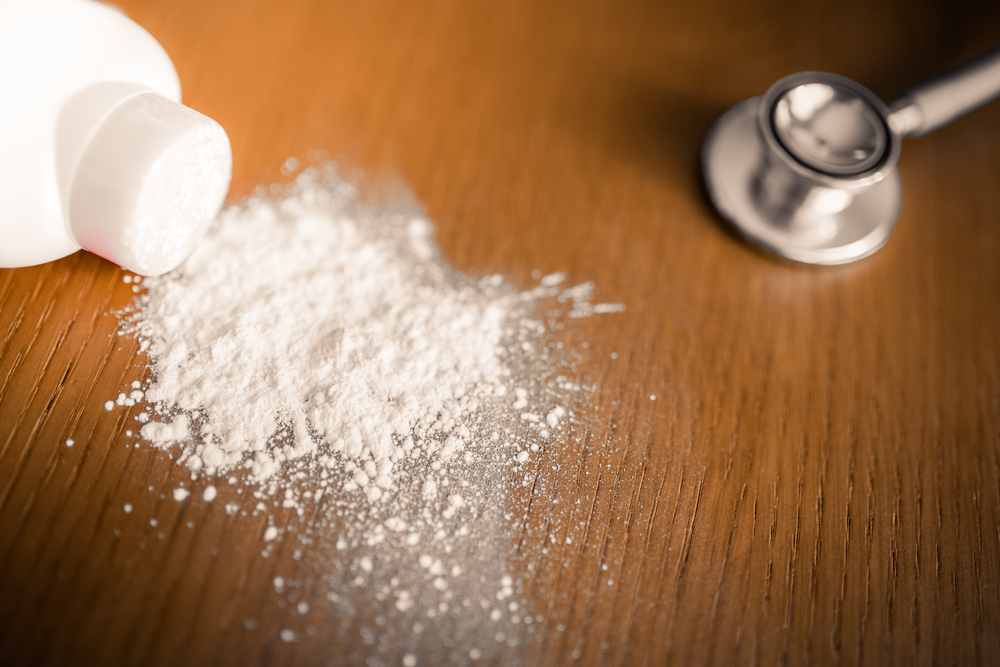A new study published in the Journal of Clinical Oncology has linked talc powder to ovarian cancer. The research, which was published last month, found that women who used talc-based powder on their genitals were more likely to develop ovarian cancer. The report comes as Johnson & Johnson faces tens of thousands of baby powder lawsuits from women who say they developed ovarian cancer after using the company’s baby powder, which has historically contained talc. The research lends credibility to the claims and could help plaintiffs prove their cases in court. J&J responded to the study by saying that it “does not change the overwhelming evidence that talcum powder does not cause ovarian cancer.”
What Is Talc Powder?
J&J has been a leader in the baby powder market for over 100 years. The company’s baby powder is often used for diaper changes, to soothe rashes, and to help with odors. Talc is a naturally occurring mineral that absorbs moisture and can help ease friction, which makes it an ideal baby powder ingredient. However, talc is often mined near asbestos, a mineral that can increase the risk of several diseases. As a result, some talc may have asbestos fibers, which are detrimental to human health. Because baby powder has a very fine texture, it’s easy to inhale the powder while using it. Johnson & Johnson is also facing lawsuits from patients diagnosed with mesothelioma, a rare cancer that’s been linked to asbestos exposure.
In 2022, J&J announced that it would start to make all of its baby powder with cornstarch instead of talc. The company stood by the safety of cosmetic talc in its announcement and said the decision came after a worldwide portfolio assessment. As a result, the J&J baby powder products currently available on store shelves don’t contain talc.
Talc and Ovarian Cancer Study
Researchers from the National Institutes of Health (NIH) and other institutions analyzed data from The Sister Study, which enrolled nearly 51,000 women from 2003 to 2009 who had a sister with breast cancer. Researchers tracked the cohort’s health to help find causes of cancer. The NIH analysis found that between 35% and 56% of women used talc powder on their genitals, and it was associated with an increased risk of ovarian cancer. The study didn’t find a link to breast or uterine cancers.
Thousands of baby powder lawsuits have been filed against J&J in recent years, most of which have been consolidated into multidistrict litigation (MDL) and handled by one judge in the same federal court. In April, J&J won a case against the family members of a Florida woman who died from ovarian cancer in 2019 after using talc powder daily for more than 50 years. The woman’s family said that J&J knew its talc products were contaminated and concealed evidence about the risk. The jury ruled in J&J’s favor after the company argued there was no link between talc powder and the woman’s diagnosis. The NIH study could make it harder for the pharmaceutical giant to win similar cases in the future.
J&J Baby Powder Lawsuits
In May, Johnson & Johnson proposed a $6.48 billion settlement to settle all of the lawsuits the company faces. J&J hopes to resolve the lawsuits through a bankruptcy filing of a subsidiary, and this is the company’s third attempt at using bankruptcy proceedings to settle lawsuits. A group of people with cancer sued Johnson & Johnson late last month, saying that the company is committing fraud by using a shell company to resolve the lawsuits. According to Reuters, the lawsuit states that the company is trying to “hinder, delay, and defraud these women and prevent them from ever having their day in court.”
In 2021, J&J implemented the “Texas Two-Step,” a legal maneuver involving creating a subsidiary, transferring lawsuits, and having the new company declare bankruptcy. The company moved the lawsuits to LTL Management, an LLC created in Texas. However, a federal court dismissed the bankruptcy filing two years later because the subsidiary wasn’t in financial distress. Johnson & Johnson relocated the subsidiary and tried to file for bankruptcy again, but the second attempt also failed. If the $6.48 billion settlement is successful, J&J will prevent future lawsuits from being filed while also stopping people from pursuing their own settlements outside of the deal. It would essentially end all of the litigation against the company. It’s still being determined whether J&J will meet the 75% support threshold from the group of plaintiffs required for the deal to succeed.
If you have been diagnosed with ovarian cancer after using Johnson & Johnson talc-based baby powder, you should know that there are legal options available to you — especially in light of the new research showing a link between the product and the disease. You should contact a lawyer as soon as possible to discuss how to best move forward.



